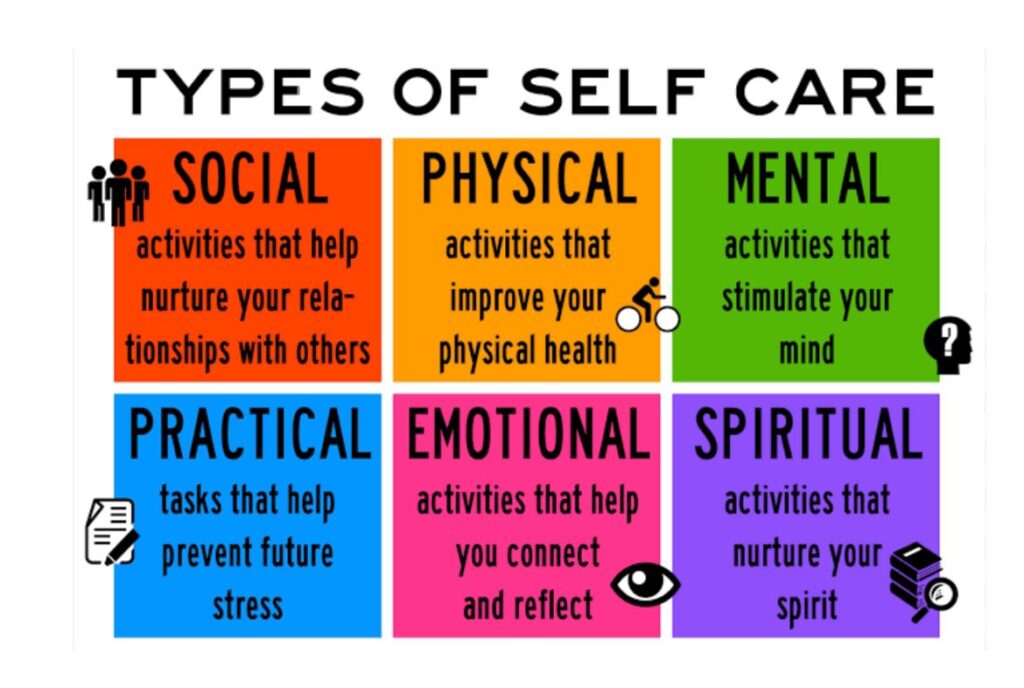Self-care refers to the activities and practices that individuals engage in on a regular basis to maintain and enhance their physical, mental, and emotional well-being. It encompasses a wide range of activities, including:
1. *Physical Self-Care*: Activities that improve physical health, such as exercise, proper nutrition, adequate sleep, and regular medical check-ups.
2. *Emotional Self-Care*: Practices that help manage and express emotions in healthy ways, such as journaling, talking to a friend or therapist, and engaging in hobbies that bring joy and relaxation.
3. *Mental Self-Care*: Activities that stimulate the mind and reduce stress, such as reading, learning new skills, meditation, and mindfulness practices.
4. *Social Self-Care*: Maintaining healthy relationships and social connections, which can involve spending time with loved ones, participating in social activities, and seeking support when needed.
5. *Spiritual Self-Care*: Practices that nurture the spirit and provide a sense of purpose and meaning, such as meditation, prayer, spending time in nature, or engaging in activities that align with personal values and beliefs.
Self-care is highly individual and can vary greatly from person to person, depending on their needs, preferences, and lifestyle. The key is to consistently engage in activities that contribute to overall well-being and balance in life.
